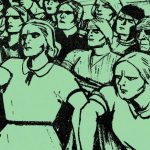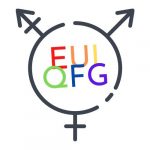Forschungsnetzwerk Geschlecht • Macht • Staat (Web)
Zeit: 23.-25.11.2022
Ort: Philipps-Universität Marburg
Einreichfrist: 15.01.2022
Since the late 15th century, discursive and social practices as well as media representations of power, sovereignty, and gender can be observed in relation to contemporary processes of early state formation, which aim at a specific consolidation and expansion of hierarchical gender orders. Throughout the centuries, strategies to legitimize specific power relations have employed above all historically grown traditions in their argumentation, the powerful impact of which allegedly shows in the longue durée. An analytical focus on continuities, however, threatens to obscure historical ruptures as well as reinterpretations and reframings of earlier media representations. Inconsistencies and conflicts between norms and social practices are also likely to fall from view.
Therefore, the interdisciplinary research network „Gender • Power Relations • State“ in cooperation with the Center for Gender Studies and Feminist Future Studies (UMR) and the Center for Media and Interactivity (JLU Gießen) will host an international and interdisciplinary 2-day conference, to examine the power relations at work in the construction, dissemination, and persistence of such narratives and to analyze their interrelations with social practices, processes of standardization, and media representations.
The conference aims to study the interdependent web of tensions between gender, power relations, and the state across centuries. Transformations, renegotiations, and revisionings in specific configurations of gendered power will be brought into focus. The intersection of institutionalizations of state power with naturalizing gender discourses specific to the respective epochs will be problematized from the angles of manifold disciplinary approaches to gender studies. In doing so, a progress- and modernization-oriented master narrative of increasing gender equality will be confronted with the limitations and closures of a scope of opportunities and possibilities to women through processes of formalization and legalization in the course of state formation until the 21th century.
Such an interdisciplinary and transepochal merging and further developing of existing analytical approaches and perspectives has not yet been attempted. The organizers assume that such an interdisciplinary and historically profound synopsis along the analytical levels of … read more and source (Web).





